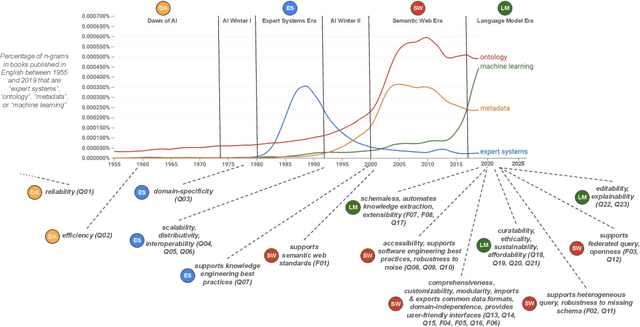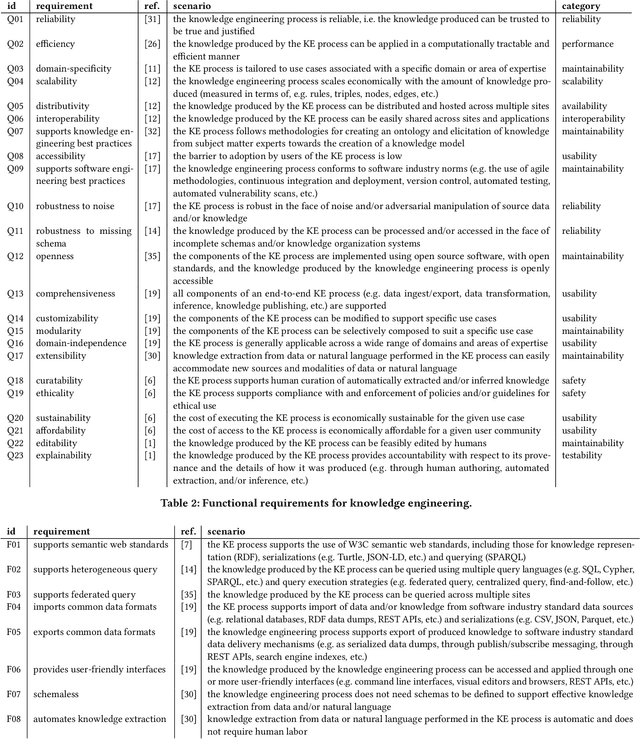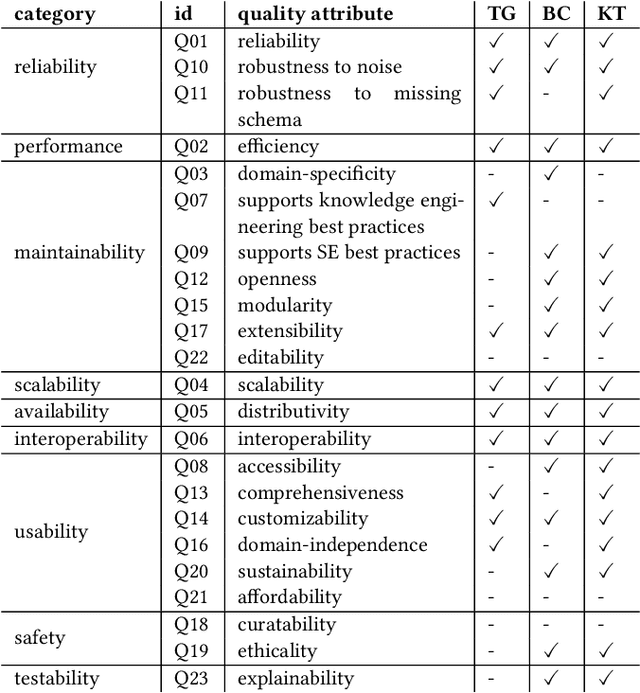Identifying and Consolidating Knowledge Engineering Requirements
Paper and Code
Jun 27, 2023


Knowledge engineering is the process of creating and maintaining knowledge-producing systems. Throughout the history of computer science and AI, knowledge engineering workflows have been widely used because high-quality knowledge is assumed to be crucial for reliable intelligent agents. However, the landscape of knowledge engineering has changed, presenting four challenges: unaddressed stakeholder requirements, mismatched technologies, adoption barriers for new organizations, and misalignment with software engineering practices. In this paper, we propose to address these challenges by developing a reference architecture using a mainstream software methodology. By studying the requirements of different stakeholders and eras, we identify 23 essential quality attributes for evaluating reference architectures. We assess three candidate architectures from recent literature based on these attributes. Finally, we discuss the next steps towards a comprehensive reference architecture, including prioritizing quality attributes, integrating components with complementary strengths, and supporting missing socio-technical requirements. As this endeavor requires a collaborative effort, we invite all knowledge engineering researchers and practitioners to join us.
 Add to Chrome
Add to Chrome Add to Firefox
Add to Firefox Add to Edge
Add to Edge